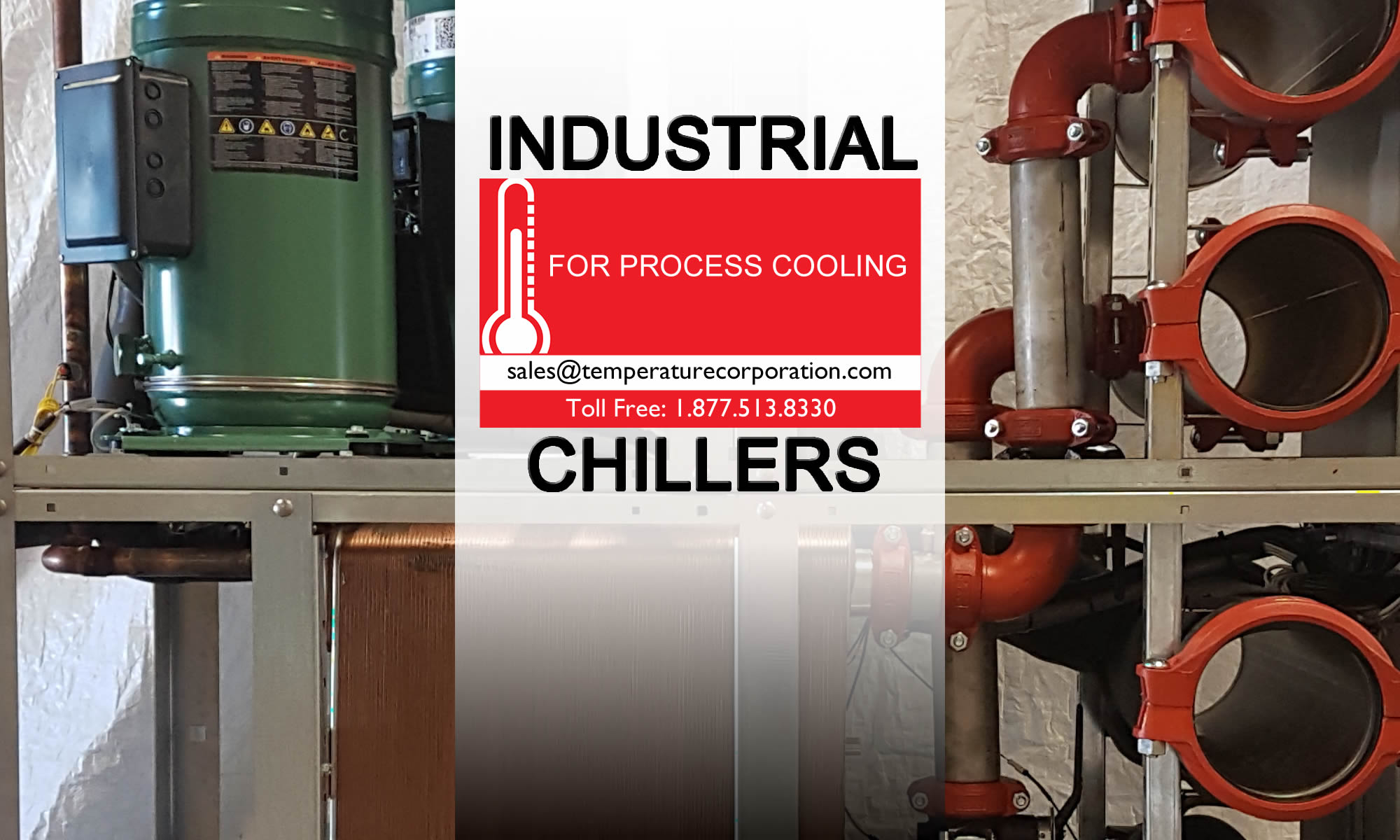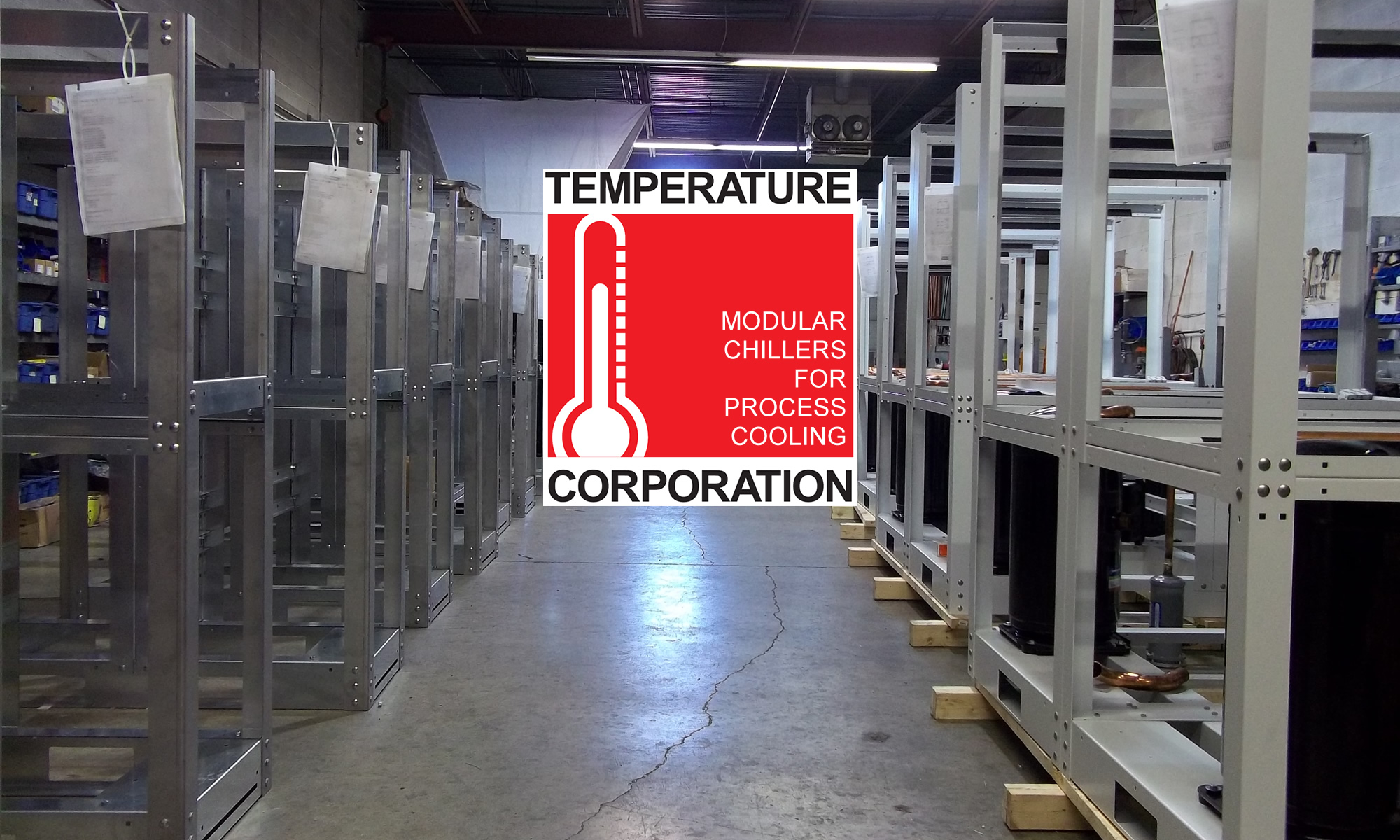Buying A Chiller or a Chilling System
Preparation: How do you buy the right chiller for your application? When you are thinking of buying a chiller or an entire chilling system, there are a number of things that a chiller manufacturer would like to know:
Process Considerations:
(For sizing the process pumps and tank size)
1. The type of process or process equipment to be cooled.
2. Is there one large machine or many smaller machines to be cooled.
3. The lowest temperature required by the process.
4. The total flow required by the process.
5. Is the process flow varying or constant.
6. The maximum water pressure required by the process.
Equipment Considerations:
(For selecting the right type of cooling equipment)
1. Is there an existing cooling tower, if so. How much free capacity?
2. If there is enough free capacity on the cooling tower and the process requires 85° F or higher water, add the new cooling load to the existing cooling tower.
3. If there is enough free capacity on the cooling tower and the process requires 60° F or lower water a water cooled chiller should be used and add its condenser load to the existing cooling tower.
4. If no cooling tower exists, and the process be cooled by 85° F water or higher a cooling tower system should be used.
5. If a cooler temperature is required, less than 60° F a chiller must be used.
6. If chilling is required with no cooling tower the chiller must be air cooled.
7. Existing conditions in plant, clean environment, maximum air temperature during the summer months and chiller location are required for indoor air cooled chillers.
8. Ambient air summer and winter air dry bulb temperatures for remote condenser and outdoor chillers, and wet bulb temperature for cooling towers
9. Power Source: voltage and hertz.
10. Expansion or static growth.
Type of air cooled chillers:
1. Portable chillers are indoor air cooled.
2. Packaged or central chillers with indoor heat-reclaim air cooled condenser chillers with exhaust duct.
3. Outdoor and remote outdoor air cooled condenser chillers are ambient air cooled.
Purchasing Considerations:
What should you look for when buying a chiller? There are several factors that should be taken into consideration when purchasing a chiller or even an entire chilling system.
Material: The first thing you should consider when buying a chiller is the kind of material that is used to make the chiller. A popular trend in the construction of chillers today is the switch to stainless steel. Chillers can be supplied with stainless steel frames, panels, pumps, tanks, evaporators and in some cases water piping.
With the use of stainless steel frames and panels on chillers no painting is required, saving our environment from noxious paint and solvent fumes.
Components: Should be standard “off-the-shelf” components from major corporations supplying refrigeration components like compressors, valves, electrics, pumps, etc. You want your chiller components to be available from local refrigeration electrical and pump wholesalers, not only from the manufacturer.
Efficiency: With the cost of energy as it is, the cost of buying a chiller has to be compared with the money you save on energy over the length of period that you plan on using the chiller. Check the EER rating (Energy Efficiency Ratio) of the chiller, the higher the number, the less energy is used to drive the compressor.
To achieve higher EER rating the chiller evaporator and condenser will need to be oversized raising the cost of the chiller.
Operation: Chiller controls should be easy to read and use, the chiller should be “user friendly”.
Maintenance: The major components on the chiller should be placed for easy access for inspection, service or replacement. Avoid small-compact units they will cost you more in the long run as the whole unit has to be dismantled to get at a major component for inspection or service. Also, avoid chillers with a “cooling coil” in the tank, these units cost less to initially purchase but will cost you more in the long run to service since you can not get access to the cooling coil in a sealed tank.
Warranty: One way a manufactures stands behind their equipment is with the warranty offered. Nowadays 5 year compressor warrantees are standard with portable chillers, 1 to 2 year parts warranty on the balance of the unit is available. 3 to 5 years on electronic boards, or life time flat fee for repair of electronic boards. Check out what is being offered before you purchase your next chiller or chilling system.
As always the decision to purchase a chiller is going to be a choice between the quality of the chiller or the chilling system and its price. Buying the best might cost more in the beginning but will save you money in the long run.
Good luck with your next purchase and please call us if you have any questions in understanding your process cooling needs, type of equipment required or if you have any questions with existing chilling equipment you may now have.

